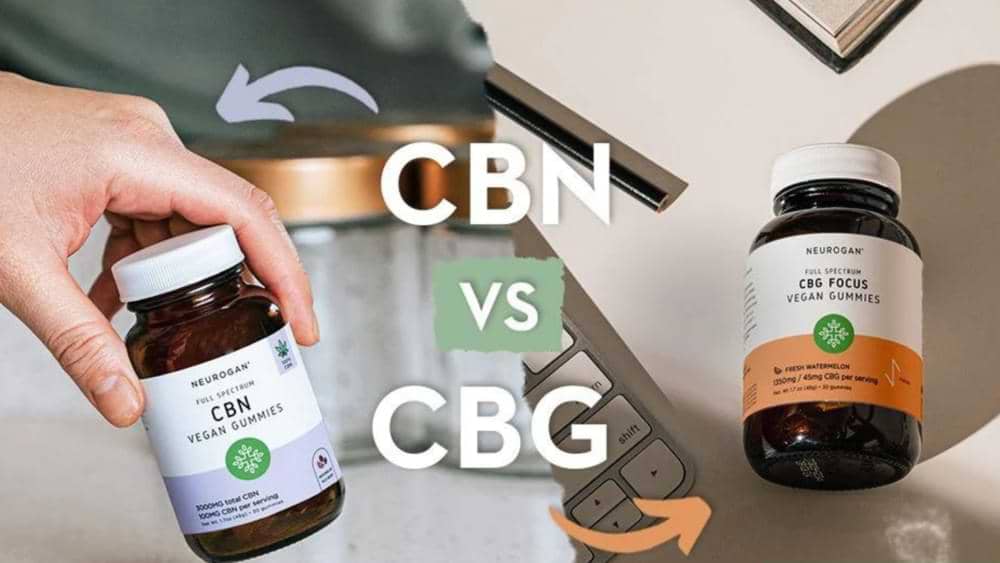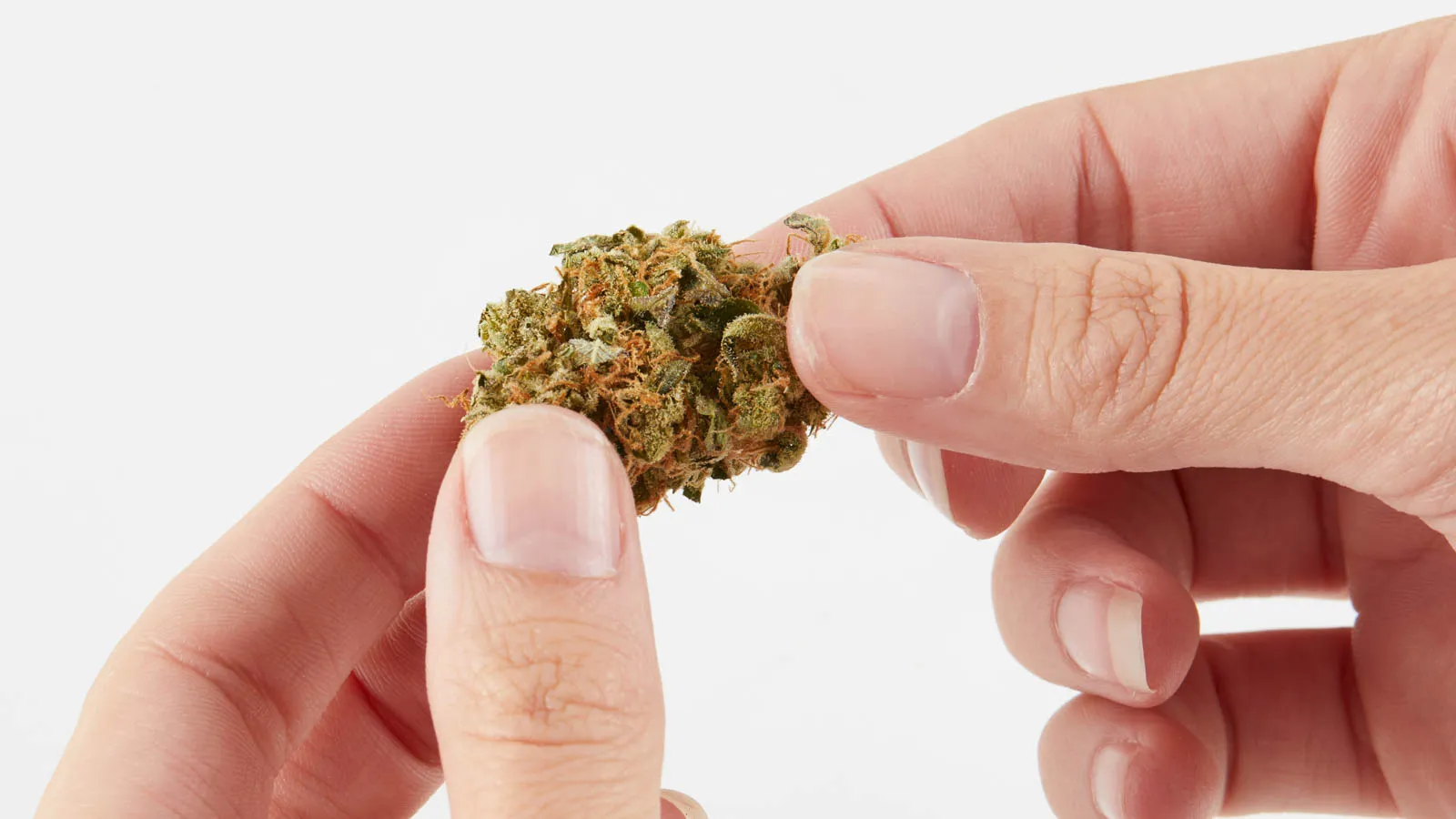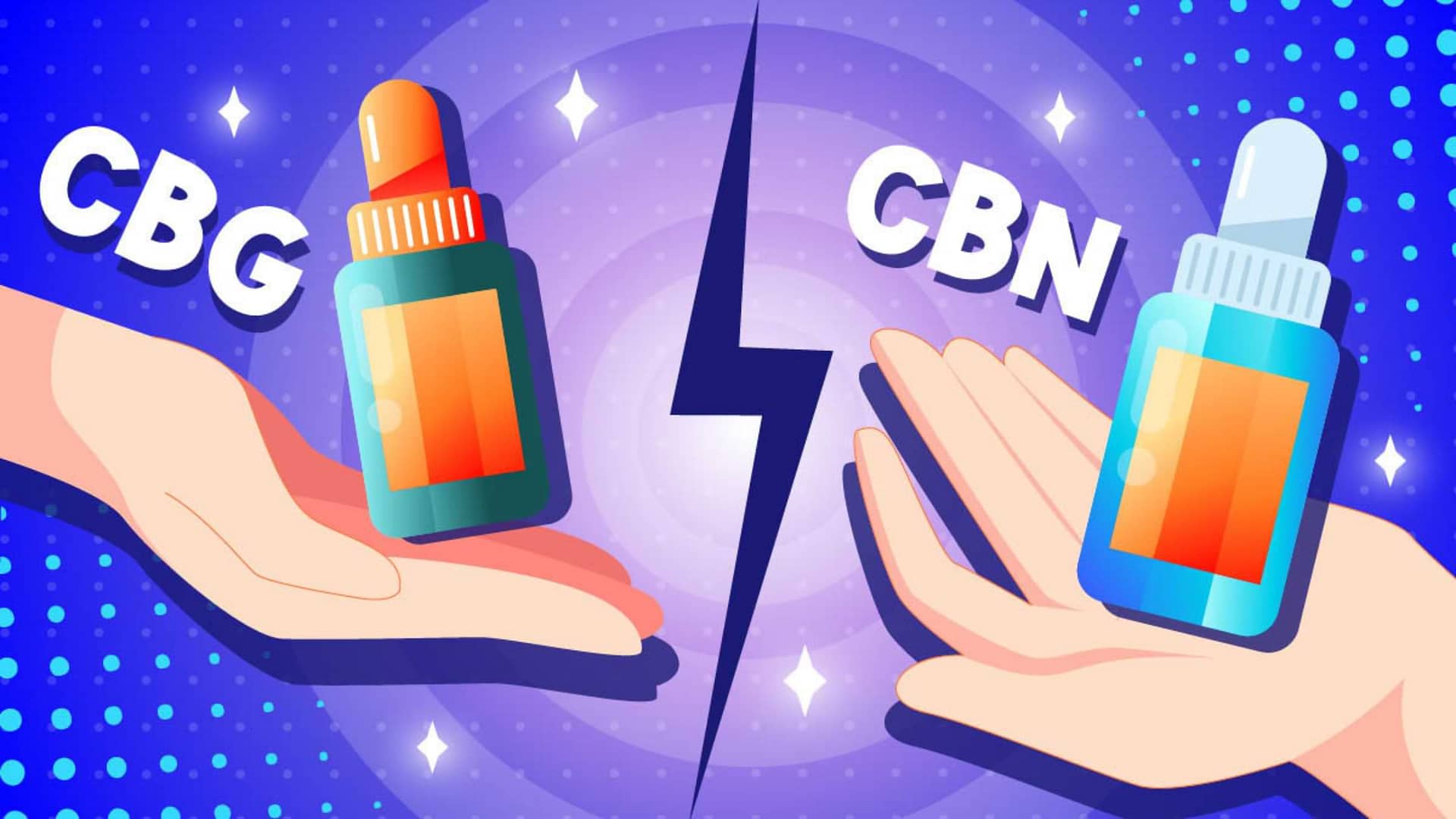In the world of cannabinoids, CBN and CBG are two distinct players. CBN is a mildly psychoactive cannabinoid known for helping with sleep. It's like a gentle lullaby for your mind. On the other hand, CBG is mostly non-psychoactive and offers a wide range of potential health perks, especially for your eyes and when you're dealing with inflammation. It's like the friendly caretaker of your wellness. Let's explore CBN vs CBG, making it easier for you to decide which one could be your wellness ally. Let's dive in!
Table of Contents
- 1 Understanding CBN vs CBG
- 2 The Potential Benefits of CBN
- 3 The Potential Benefits of CBG
- 4 How Do CBN and CBG Work?
- 5 Differences Between CBN and CBG
- 6 Choosing the Right Cannabinoid for Your Needs
- 7 Conclusion
- 8 FAQs
- 9 1. Does CBN get you high like THC?
- 10 2. Can CBG help with anxiety?
- 11 3. Are there any side effects of using CBN or CBG?
- 12 4. Is it safe to take CBN or CBG regularly?
- 13 5. Can I use CBN and CBG together?
- 14 6. Is CBN legal?
- 15 7. Can CBN or CBG interact with medications?
- 16 8. How long does it take for CBN or CBG to take effect?
- 17 9. Can I use CBN or CBG during the day?
- 18 10. Are there age restrictions for using CBN or CBG?
Understanding CBN vs CBG

What Is CBN?
CBN, or cannabinol, is a lesser-known cannabinoid that forms as a result of the degradation of THC (tetrahydrocannabinol). It's found in trace amounts in mature cannabis plants and is best known for its potential sedative effects.
What Is CBG?
CBG, or cannabigerol, is often referred to as the “mother cannabinoid” because it serves as a precursor to other cannabinoids like THC and CBD. It's typically found in lower concentrations in most cannabis strains.
The Potential Benefits of CBN
1. Sleep Aid
One of CBN's most noteworthy potential benefits is its role as a sleep aid. Some users have reported that CBN helps them fall asleep faster and stay asleep longer, making it a valuable option for those struggling with insomnia.
2. Pain Relief
CBN offers pain relief, just as CBD oil for pain relief does, although research is ongoing. It interacts with the body's pain receptors, potentially providing relief from various types of discomfort.
3. Antibacterial Properties
Preliminary research suggests that CBN might have antibacterial properties. This could make it a promising candidate for fighting infections.
The Potential Benefits of CBG
1. Anti-Inflammatory Effects
CBG has shown promise as an anti-inflammatory agent. It help alleviate symptoms of inflammatory conditions like Crohn's disease.
2. Mood Regulation
CBG have mood-regulating properties and could potentially help with anxiety and depression. Research in this area is still in its early stages.
3. Glaucoma Management
Some studies suggest that CBG could be useful in managing intraocular pressure, which is relevant for conditions like glaucoma.
How Do CBN and CBG Work?

CBN (cannabinol) and CBG (cannabigerol) exert their effects by interacting with the Endocannabinoid System (ECS) in our bodies. The ECS is a complex network of receptors and compounds responsible for regulating various physiological processes, including mood, pain perception, immune response, and sleep.
CBN primarily interacts with ECS by binding to CB1 receptors in the brain. This interaction explain its mild psychoactive effects and potential to promote relaxation and sleep.
In contrast, CBG has a broader approach. It interacts with both CB1 and CB2 receptors in the ECS, influencing a range of functions.
CBG's interactions explain its potential benefits for mood regulation, inflammation reduction, and even eye health.
Differences Between CBN and CBG
Chemical Structure
One of the primary differences between CBN vs CBG is their chemical structure. CBN is a breakdown product of THC, whereas CBG is a precursor to other cannabinoids.
Potential Effects
CBN is often associated with sedation and sleep-inducing properties, while CBG offer more of an energetic or uplifting feeling.
Research Status
CBN has seen relatively more research focused on its potential sedative and antibacterial properties. CBG, on the other hand, is an emerging area of study.
Here is the table of CBN vs CBG :
| Aspect | CBN (Cannabinol) | CBG (Cannabigerol) |
| Chemical Structure | Breakdown product of THC | Precursor to other cannabinoids |
| Potential Effects | Sedative and sleep-inducing | Energetic or uplifting |
| Research Focus | Sedative and antibacterial | Emerging area of study |
| Common Uses | Sleep aid, pain relief | Anti-inflammatory, mood regulation |
| Psychoactive | Not psychoactive | Not psychoactive |
Choosing the Right Cannabinoid for Your Needs

1. Consider Your Wellness Goals
When deciding between CBN and CBG, start by considering your wellness goals. Are you looking for better sleep, pain relief, or mood regulation? Understanding your needs can guide your choice.
2. Experiment Responsibly
Keep in mind that individual responses to cannabinoids can vary widely. Start with a low dose and adjust gradually to find what works best for you.
Methods of Consumption
Both CBN and CBG are available in various forms, including oils, capsules, and topicals. The method of consumption can affect the onset and duration of effects, so choose one that suits your preferences.
Conclusion
In the world of cannabinoids, CBN and CBG offer unique potential benefits. Whether you're seeking better sleep, pain relief, or mood regulation, understanding the differences between these two cannabinoids is key to making an informed choice. Start with low doses, and experiment responsibly to discover which cannabinoid aligns best with your wellness goals.
FAQs
1. Does CBN get you high like THC?
No, CBN is not psychoactive like THC. It induce relaxation and sedation but does not produce a “high.”
2. Can CBG help with anxiety?
CBG shows potential as a mood regulator, but more research is needed to establish its effectiveness for anxiety.
3. Are there any side effects of using CBN or CBG?
Side effects are possible and include dry mouth, dizziness, or changes in appetite.
4. Is it safe to take CBN or CBG regularly?
Both CBN and CBG are generally considered safe, but it's essential to use them responsibly.
5. Can I use CBN and CBG together?
Some individuals choose to use both cannabinoids simultaneously, but it's crucial to start with low doses and monitor your response.
6. Is CBN legal?
The legal status of CBN varies by region, so it's essential to be aware of local regulations.
7. Can CBN or CBG interact with medications?
Both cannabinoids have the potential to interact with medications.
8. How long does it take for CBN or CBG to take effect?
Onset times vary depending on factors like dosage and method of consumption. Effects can typically be felt within 30 minutes to an hour.
9. Can I use CBN or CBG during the day?
CBN is often associated with relaxation and sleep, so it's usually better suited for evening use. CBG be used during the day for its potentially energizing effects.
10. Are there age restrictions for using CBN or CBG?
Age restrictions on the use of cannabinoids vary by region, so it's essential to be aware of local regulations.

Nutritionist
Milena Kaler, a skilled nutritionist, enhances the accuracy and comprehensiveness of our supplement reviews.











+ There are no comments
Add yours